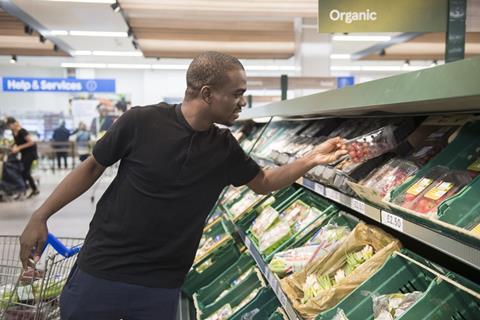Tesco’s Dominic Morrey stressed the importance of long-term certainty for producers at a Lords horticulture inquiry, naming fair pricing and a workable seasonal workers scheme as priorities
The UK’s Seasonal Worker Scheme is “not currently fit for purpose”, according to Dominic Morrey, commercial director for fresh food and commodities at Tesco, speaking to the House of Lords Horticultural Sector Committee.

“I think the number of countries that it draws from makes it hard to administer and potentially leaves it open to poor practice, such as fees being sought in advance of people coming,” he explained. “And any time you spread that out, it does make auditing and keeping to the standard that we would all want to be adhered to hard to deliver.”
Asked how growers could be assisted during this period of high costs, Morrey stressed the need for certainty so growers could plan accordingly.
“Our suppliers want certainty,” he said. “So, you know, the seasonal workers scheme – being unclear as to whether it’s going to get extended or not, is not helpful when they’re planning. Increasingly, planning permission for things like glasshouse structures can be challenging. We’ve talked about climate impacts, the ability to plan and have reservoirs of water storage.”
He said the company’s policy of offering longer-term contracts was part of that effort. “I talk to everyone about Branston, our potato packer who supply us from 130 Tesco sustainable farm groups,” he said. “We’re in a five-year contract with them, and what these types of contracts do is allow certainty that the volumes and business will be there for the long term and allows them to plan their investments. If it’s a potato facility, it may be storage or grading equipment. If you’re talking about soft fruit it could be about laying down new glass.”
Along with long-term certainty, he said, it was essential to have “fair and transparent” prices. “Clearly, if people aren’t paid a fair price then the industry isn’t sustainable,” he stated. “Fair pricing is fundamental to offering people long term certainty around the investments they’re making. Short termism doesn’t have any place in supporting this particular part of the industry.”
Morrey said that Tesco sought to support local growers by always choosing sustainably produced domestic produce over imports.
“Vegetables is a very good example,” he said. “Two-thirds of what we would sell in Tesco would be UK sourced and about one-third imported. Clearly, in-season our aspiration is to always have 100 per cent of that product UK-sourced and produced. So April to October, areas like broccoli, cauliflower, iceberg lettuce, at the moment it’s all fully UK-supplied and sourced. The longer British seasons, things like kale, would go on for longer than that.
“In the UK season, we’re fully committed to being 100 per cent UK-sourced where we can do so. For products like tomatoes, peppers and cucumbers, we increased our tonnage last year by 20 per cent year on year. Currently we’re the only supermarket that’s got peppers in stores that are 100 per cent UK, so that is always our focus.”
For apples and pears, Morrey said Tesco intended to increase its support for local production, including in areas like storage to extend the selling season.
“We are the UK’s biggest seller of British apples and pears, and our volume increased by 35 per cent last year,” he said. “Apples and pears is an area where we feel we have a strong commitment to the UK grower base, we’re the number one seller of those products by tonnage, and we’re looking to grow that further.”



